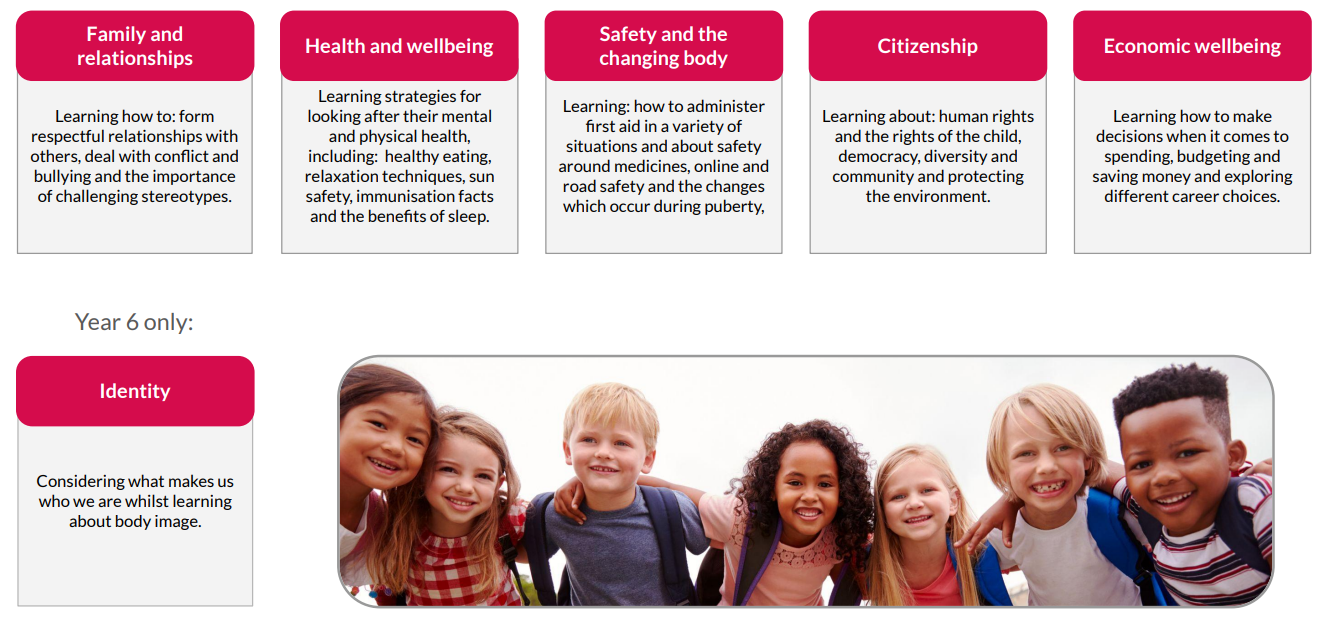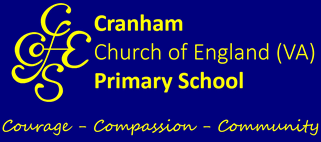PSHE & R(S)HE Intent: How we plan for this subject...
At Cranham Primary, we teach PSHE (Personal, Social, Health and Economic education) and R(S)HE (Relationships, (Sex) and Health Education) as a whole school approach.
In EYFS, this consists of three areas of learning:
- Self-regulation
- Building relationships
- Managing self
In KS1 & KS2, we provide full coverage of the statutory and the non-statutory elements of the new national curriculum for relationships, sex and health education as well as covering the PSHE Association's guidance:
- Families and relationships
- Health and wellbeing
- Safety and the changing body
- Citizenship
- Economic wellbeing
- Identity (Y6 only)

Each area is revisited to allow children to build on prior learning. The lessons also provide a progressive programme. The lessons are based upon the statutory requirements for Relationships and Health education, but where our lessons go beyond these requirements (primarily in the Citizenship and Economic wellbeing areas) they refer to the PSHE Association Programme of Study which is recommended by the DfE. Sex education has been included in line with the DfE recommendations and is covered in Year 6 of our scheme. The scheme supports the requirements of the Equality Act through direct teaching, for example learning about different families, the negative effect of stereotypes and celebrating differences, in addition to the inclusion of diverse teaching resources throughout the lessons.
Primary’s RSE and PSHE scheme of work has been designed as a spiral curriculum with the following key principles in mind:
- Cyclical: Pupils revisit the five key areas throughout KS1 and KS2.
- Increasing depth: Each time a key area is revisited, it is covered with greater depth and increasing maturity.
- Prior knowledge: Upon returning to each key area, prior knowledge is utilised so pupils can build on previous foundations, rather than starting again.
Curriculum Map and Unit Outcomes
R(S)HE - Relationships (Sex) and Health Education:
Sex education is not compulsory in primary schools, beyond what is laid out in the National Curriculum for Science:
- Year 1: Identify, name, draw and label the basic parts of the human body and say which part of the body is associated with each sense
- Year 2: Notice that animals, including humans, have offspring which grow into adults
- Year 5: Describe the life process of reproduction in some plants and animals; describe the changes as humans develop to old age [They should learn about the changes experienced in puberty.]
The Department for Education has provided statutory guidance on relationships education:
The focus in primary school should be on teaching the fundamental building blocks and characteristics of positive relationships, with particular reference to friendships, family relationships, and relationships with other children and with adults.
This starts with pupils being taught about what a relationship is, what friendship is, what family means and who the people are who can support them. From the beginning of primary school, building on early education, pupils should be taught how to take turns, how to treat each other with kindness, consideration and respect, the importance of honesty and truthfulness, permission seeking and giving, and the concept of personal privacy.
Establishing personal space and boundaries, showing respect and understanding the differences between appropriate and inappropriate or unsafe physical, and other, contact – these are the forerunners of teaching about consent, which takes place at secondary.
We teach respect for others in an age-appropriate way, in terms of understanding one’s own and others’ boundaries in play, in negotiations about space, toys, books, resources and so on.
We consult with our parents each year to decide which aspects of sex education (which go beyond the national curriculum for science), we will cover, as is set out in our policy. Unlike sex education in RSE at secondary, in primary schools, parent’s have the right to withdraw their child from sex education beyond the national curriculum for science.
Click here to read the government's statutory guidance on relationships education at primary school
By the end of primary school, pupils should know the following about each of the categories below:
